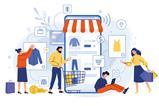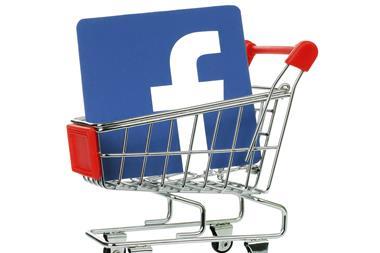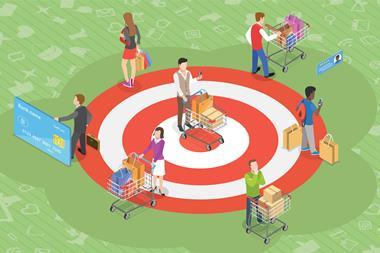Last year will go down as one of the toughest recorded by retailers. But learning from businesses that thrived can help brands plan for success.
While coronavirus made 2020 a difficult year across retail, at Facebook we also had the privilege of seeing how many businesses stayed resilient and adapted to the rapid changes the pandemic brought about.
With bricks-and-mortar shops closed across large parts of the world, online shopping became particularly important. IBM estimates that the pandemic accelerated ecommerce adoption by up to five years.
What’s more, this shift is set to continue even as businesses are able to reopen their physical stores.
Around 70% of consumers globally say they get their shopping ideas from social channels, while 56% in the UK agree they have become as important as other media channels, according to our research.
We’ve developed an approach to help retailers make the most of this shift. We call this discovery commerce.
Where traditionally shoppers might have searched for products, with discovery commerce brands can share products directly with the customers on social media who are most likely to love them.
The result is a more engaging shopping experience for consumers built on their interests and brands they already follow.
Here we take a look at three strategies that have helped retailers to inspire your own discovery commerce journey this year.
1. Test, test, test
Many businesses used the pandemic to accelerate their testing plans.
Just Eat marketing director Matthew Bushby says the business did two years’ worth of learning in just six months, finding insights that helped build its business as Covid-19 accelerated the company’s strategy.
Furniture retailer Made.com set a rapid and powerful testing plan throughout spring and summer in order to work out the best route to attracting new customers.
This meant a focus on data connectivity, advancing attribution and predictive views in partnership with Facebook.
“By making the decision to test and analyse results quickly, Made.com was able to respond proactively to customer behaviour, while also keeping an eye on wider behavioural shifts”
Made.com discovered through this testing that prospecting new shoppers was more valuable than retargeting. As a result, they placed more focus on the end-to-end journey for these customers with simple creatives showcasing their product range.
What’s more, by making the decision to test and analyse results quickly, Made.com was able to respond proactively to customer behaviour, while also keeping an eye on wider behavioural shifts.
This type of ‘two-speed’ testing allows brands to consider both long-term consumer trends and short-term circumstantial shifts.
Discovery commerce also formed a key part of the customer acquisition strategy for The Hut Group’s stable of online brands.
THG’s global nutrition and wellbeing brand Myprotein similarly focused on testing new customer optimisation to drive incremental sales and saw an uplift in conversions of 16% – a 3% increase in new customers and an incremental return-on-advertising spend of two to one.
Taking advantage of Facebook’s measurement tools can help retailers test a range of targeting strategies to understand the most effective approach for their business.
2. Make shopping a joyful experience
With many in-person store experiences put on hold, 2020 saw brands take the opportunity to create innovative, exciting online alternatives.
Digital events and ad campaigns that brought a sense of fun and occasion to online shopping helped to keep customers engaged.
Online wine retailer Naked Wines’ Thirsty Toosdays is the perfect example. These events, hosted via Zoom to combat the isolation of lockdown, brought Naked Wines’ community of Angel subscribers and staff together to raise a glass and have a virtual chat with its winemakers.
The sessions very quickly took off, with thousands of members joining the free weekly events.
For brands where events make less sense, bringing joy and a sense of occasion can be about something as simple as catchy, engaging adverts.
Takeaway app Just Eat’s light-hearted campaign featuring Snoop Dogg, who raps about “oodles of noodles” and “tacos to the chateau” in the TV adverts, brought much-needed fun to lockdown in the UK.
While coronavirus occasioned the shift to online, the trend is set to persist.
For 2021, brands should focus on making online shopping a joyful experience.
Hosting events that bring customers together can be a great way of driving engagement, with tools like Facebook Live and Instagram polls making it easy to interact with an online community.
3. Innovate to stay ahead: offer in-store expertise at home
The shift to online isn’t just about connection, however – it also means making sure customers have the information they need to make product decisions from the comfort of their homes.
Dixons Carphone did just this. Its ShopLive service was launched in April 2020, connecting customers to tech experts in stores to unlock personalised shopping advice from their sofas.
By Black Friday, it had expanded this service, with up to 2,100 colleagues trained on the platform. More than 600,000 customers have now used the service.
Empowering customers with the knowledge to shop confidently from home is also driving Made.com’s strategy.
“Finding inventive ways to help potential buyers understand a brand’s products is an important part of building a relationship with online shoppers”
The brand has launched a virtual showroom from Amsterdam to provide the smoothest and most immersive shopping experience yet, by allowing customers to view products in 3D from their homes.
In the UK, Made is currently using Facebook augmented-reality (AR) ads to enable people to visualise its products in 3D in their homes. This is an approach that has been used to great effect by Ashley Homestore in the US, who saw a 10-times return on ad spend using the same format.
While not every company will benefit from exploring AR, finding inventive ways to help potential buyers understand a brand’s products, such as a Messenger service or even responding to user comments on social media, is an important part of building a relationship with online shoppers.
What connects these leading retail brands is a commitment to understanding what their customers want, speaking to them with the right messaging and in the right channels, and a fearless commitment to innovation to stay one step ahead of the competition.
David Josephs is retail head of industry at Facebook





























